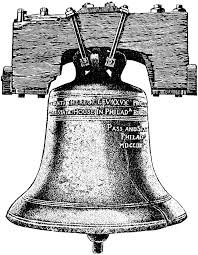
Would you like to make some quick cash? Then go to any university/college professor and bet him/her that if he/she cannot answer you within one minute, then you win the bet. The killer question is: When did the American colonies become the United States?”
Groupthink, dumbing down, indoctrination, misinformation, disinformation, automatonation, off-the-shelf-factoids, and terminal stupidity cascades out the ivy-covered ivory towers quicker than Rapunzel can toss her hair. The truth will terrify them every time.

In doubt, you think to yourself, “Wait, this is U.S. history, how could they not know the answer? I will lose my money.” Hey, if that is how you feel, then do not quit your day job. In fact, that is all that you will ever be good for in the Matrix.
Okay a hint: while British General Cornwallis was chasing after American General Greene and the showdown at Guilford Courthouse was close to reality, it happened. Maryland, after an almost two-year hold-out, became the thirteenth state to ratify the second engrossed copy of The Articles of Confederation on March 1, 1781.
Maryland’s ratification was the beginning of the United States in Congress. Interestingly, the first president, of this Congress, John Hanson was from Maryland. Confusion and disinformation often start here. The knee-jerk response by academia to the Articles of Confederation are religious. Afterall, the state religion is statism. During this period, all power of government was the several states and the Continental Congress.

This same Congress ratified the negotiated preliminary Articles of Peace (Treaty of Paris) with Britain (signed by Benjamin Franklin, John Adams, John Jay, and Henry Laurens for the United States) on January 14, 1784.
In an ideal world, stateless societies and limited-government entities COOPERATE. Yeah; I know, “What a concept!” In the United States of 1784, it was a free-for-all. Even though the Treaty of Paris had the several states and Congress restore Loyalists’ property and to be at peace with any Anglophile, no clause said that the states would treat each other fairly and - Cough! Cough! - decently.
Each of the thirteen states had armies. Nine even had navies. The dreaded enemy was each other. Was this a deliberate and instigated chaos or was the condition indicative of the putrid side of human nature? The State of Virginia passed a statute that “allowed it” to seize ships which failed to pay taxes to the state. I know you think that this arrogance was directed at various Europeans nations. You would be in error tyranny breath. The law meant ships from other states.

America, in circa 1784, was a dystopia. In state-free societies, local populace would select judges amongst their own to handle minor disputes. Congress had no power to launch courts that could handle controversies between states. Some eight or nine amendments proposed to amend the Articles of Confederation failed. There was an enormous fear of consolidated power within a central government. To an objective observer, America was considerably worse off after independence than prior. A shroud covered the previous enlightenment.
In Part 8, we will discuss the crafting of tyranny.
https://steemit.com/anarchy/@aedroberts/so-you-think-you-know-american-history-part-1
https://steemit.com/anarchy/@aedroberts/so-you-think-you-know-american-history-part-2
https://steemit.com/anarchy/@aedroberts/so-you-think-you-know-american-history-part-3
https://steemit.com/anarchy/@aedroberts/so-you-think-you-know-american-history-part-4
https://steemit.com/anarchy/@aedroberts/so-you-think-you-know-american-history-part-5
https://steemit.com/anarchy/@aedroberts/so-you-think-you-know-american-history-part-6
We are The Unmentionables. You can join our Discord Channel at https://discord.gg/4UqNjs2
I hardly know anything about the real American History. Times were ever so different. I'm glad to meet you here. Thank you.